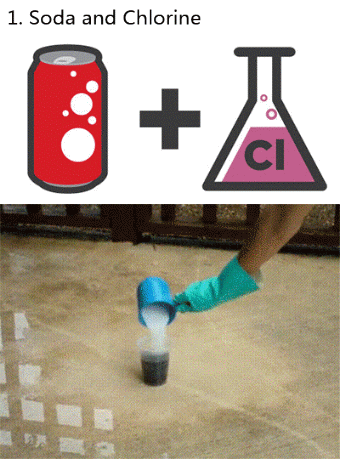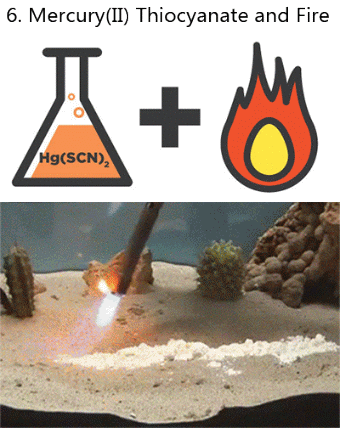Newly Discovered Windows Of Brain Plasticity May Help With Treatment Of Stress-related Disorders
Newly discovered windows of brain plasticity may help with treatment of stress-related disorders
Chronic stress can lead to changes in neural circuitry that leave the brain trapped in states of anxiety and depression. But even under repeated stress, brief opportunities for recovery can open up, according to new research at The Rockefeller University.

(Image caption: Routine versus disruptive: A familiar stressor (left) did not increase NMDA receptors (dark spots), a booster of potentially harmful glutamate signaling, in the brains of mice. However, when subjected to an unfamiliar stress (right), mice expressed more NMDA receptors)
“Even after a long period of chronic stress, the brain retains the ability to change and adapt. In experiments with mice, we discovered the mechanism that alters expression of key glutamate-controlling genes to make windows of stress-related neuroplasticity—and potential recovery—possible,” says senior author Bruce McEwen, Alfred E. Mirsky Professor, and head of the Harold and Margaret Milliken Hatch Laboratory of Neuroendocrinology. Glutamate is a chemical signal implicated in stress-related disorders, including depression.
“This sensitive window could provide an opportunity for treatment, when the brain is most responsive to efforts to restore neural circuitry in the affected areas,” he adds.
The team, including McEwen and first author Carla Nasca, wanted to know how a history of stress could alter the brain’s response to further stress. To find out, they accustomed mice to a daily experience they dislike, confinement in a small space for a short period. On the 22nd day, they introduced some of those mice to a new stressor; others received the now-familiar confinement.
Then, the researchers tested both groups for anxiety- or depression-like behaviors. A telling split emerged: Mice tested shortly after the receiving the familiar stressor showed fewer of those behaviors; meanwhile those given the unfamiliar stressor, displayed more. The difference was transitory, however; by 24 hours after the final stressor, the behavioral improvements seen in half of the mice had disappeared.
Molecular analyses revealed a parallel fluctuation in a part of the hippocampus, a brain region involved in the stress response. A key molecule, mGlu2, which tamps down the release of the neurotransmitter glutamate, increased temporarily in mice subjected to the familiar confinement stress. Meanwhile, a molecular glutamate booster, NMDA, increased in other mice that experienced the unfamiliar stressor. In stress-related disorders, excessive glutamate causes harmful structural changes in the brain.
The researchers also identified the molecule regulating the regulator, an enzyme called P300. By adding chemical groups to proteins known as histones, which give support and structure to DNA, P300 increases expression of mGlu2, they found.
In other experiments, they looked at mice genetically engineered to carry a genetic variant associated with development of depression and other stress-related disorders in humans, and present in 33 percent of the population.
“Here again, in experiments relevant to humans, we saw the same window of plasticity, with the same up-then-down fluctuations in mGlu2 and P300 in the hippocampus,” Nasca says. “This result suggests we can take advantage of these windows of plasticity through treatments, including the next generation of drugs, such as acetyl carnitine, that target mGlu2—not to ‘roll back the clock’ but rather to change the trajectory of such brain plasticity toward more positive directions.”
More Posts from Science-is-magical and Others
which scientist should you fight
geologist: will throw copious amounts of rocks at you. not recommended unless you can also throw equal amounts of rocks back
botanist: knows 1001 ways to poison you. probably shouldn't fight
zoologist: knows 1001 animals that can kill you. probably shouldn't fight either
entomologist: spiders. enough said.
physiologist: they know too much about the human body and how to cause optimal pain with minimal damage. not safe.
geneticist: will unleash their army of mutated fruit flies at you. can be either good or bad thing, depending on your preference for flies with legs growing out of their eyes
immunologist: they have perfected the t-cell inspired technique of "death by neglect". if you fight them you will die in the saddest way possible
microbiologist: please don't fight someone who is already pissed about antibiotic resistance and can identify bacteria based solely on their smell
climatologist: will choose the battlefield as somewhere in the path of a category 5 hurricane and then leave you to die. do not fight please
environmental scientist: they can control the entire world do you really want to fight them
chemist: have you seen breaking bad? no, do not fight them. do NOT
physicist: will kill you with math. not the best way to go
herpetologist: can probably speak parseltongue and know just which frogs are best at taking over your habitat. only fight if you live in antarctica
cancer biologist: has immediate access to at least 5 different tumor cell lines and knows exactly where to inject them in your heart to cause metastases. don't even look them in the eye
marine biologist: is a real life aquaman. will lure you with cute river otters and then finish you off with some terrifying deep sea creature. better to just stay home and never leave
psychologist: is basically a mind reader. will drown you in your deepest darkest fears. 10/10 do not recommend to fight
molecular biologist: will kill you organelle by organelle. you will die a slow and painful death while covered in budding yeast
statistician: their power is always over 80%, and they will quickly punt you in the path of a normal distribution even before you can yell "Wilcoxon!"
archaeologist: can use a trowel 59 different ways, and only 9 are for digging. one can only guess the other 50, so may be advisable to stay far away
astronomer: will launch you into space and send you to a planet so inhospitable not even matt damon can make it back this time
pharmacologist: why would you ever fight someone who knows all about drugs. why
computer scientist: they know the perfect algorithm for death. do not fight, even with a firewall
linguist: no matter where you are, they can talk about you behind your back in the native tongue. do you really want death by humiliation. do you
dinosaurologist: are you kidding me?? the answer is no
sociologist: yea

A bizarre new species of marine worm lacks a number of internal features common to other animals — including an anus, new research shows.
Today is Copernicus’s 540th birthday. You may remember Copernicus as the man who said “Hey, what if the Earth went around the sun?” To which the Catholic Church replied “Hey, what if we set you on fire?”

About 400 million years ago, before trees were common, the Earth was covered with giant mushrooms. Source
Listening To Music Releases Dopamine In The Brain
Have you ever been listening to a piece of music and experienced intense pleasure, even chills? Valorie Salimpoor and team (2010) conducted research that shows that listening to music can release the neurotransmitter dopamine.
A wide range of music — The researchers used PET (positron emission tomography) scans, fMRI, and psychophysiological measures such as heart rate to measure reactions while people listened to music. The participants provided music that they said gave them intense pleasure and chills. The range of music varied, from classical, folk, jazz, elecronica, rock pop, tango, and more.
Keep reading
-
 science-is-magical reblogged this · 8 years ago
science-is-magical reblogged this · 8 years ago -
 s-t-i-l-l-e-s reblogged this · 9 years ago
s-t-i-l-l-e-s reblogged this · 9 years ago -
 s-t-i-l-l-e-s liked this · 9 years ago
s-t-i-l-l-e-s liked this · 9 years ago -
 muhlenbergia liked this · 9 years ago
muhlenbergia liked this · 9 years ago -
 princelysome reblogged this · 9 years ago
princelysome reblogged this · 9 years ago -
 thedragoncael reblogged this · 9 years ago
thedragoncael reblogged this · 9 years ago -
 plantyhamchuk reblogged this · 9 years ago
plantyhamchuk reblogged this · 9 years ago -
 ihkura reblogged this · 9 years ago
ihkura reblogged this · 9 years ago -
 jenericalname reblogged this · 9 years ago
jenericalname reblogged this · 9 years ago -
 chocolatemilk4029 reblogged this · 9 years ago
chocolatemilk4029 reblogged this · 9 years ago -
 mistergeek liked this · 9 years ago
mistergeek liked this · 9 years ago -
 zazuii-blog liked this · 9 years ago
zazuii-blog liked this · 9 years ago -
 hshxhxkskxjdjajjaajsjsk liked this · 9 years ago
hshxhxkskxjdjajjaajsjsk liked this · 9 years ago -
 bad-0mens reblogged this · 9 years ago
bad-0mens reblogged this · 9 years ago -
 tumbsup-blr liked this · 9 years ago
tumbsup-blr liked this · 9 years ago -
 mymindisaninferno liked this · 9 years ago
mymindisaninferno liked this · 9 years ago -
 zeeblee liked this · 9 years ago
zeeblee liked this · 9 years ago -
 e-starstuff reblogged this · 9 years ago
e-starstuff reblogged this · 9 years ago -
 e-starstuff liked this · 9 years ago
e-starstuff liked this · 9 years ago -
 yotzin12 liked this · 9 years ago
yotzin12 liked this · 9 years ago -
 nestor128 reblogged this · 9 years ago
nestor128 reblogged this · 9 years ago -
 atwistedsense liked this · 9 years ago
atwistedsense liked this · 9 years ago -
 xan16 liked this · 9 years ago
xan16 liked this · 9 years ago -
 thecakeyone liked this · 9 years ago
thecakeyone liked this · 9 years ago -
 barettapr liked this · 9 years ago
barettapr liked this · 9 years ago -
 intoxi-katie-ng reblogged this · 9 years ago
intoxi-katie-ng reblogged this · 9 years ago -
 seb-t liked this · 9 years ago
seb-t liked this · 9 years ago -
 the-more-u-know reblogged this · 9 years ago
the-more-u-know reblogged this · 9 years ago -
 kokabel liked this · 9 years ago
kokabel liked this · 9 years ago -
 loveendnessly reblogged this · 9 years ago
loveendnessly reblogged this · 9 years ago -
 loveendnessly liked this · 9 years ago
loveendnessly liked this · 9 years ago




















